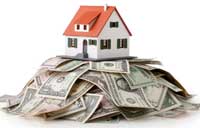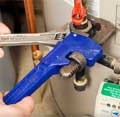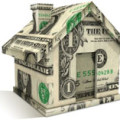American underwater mortgage rates peaked in 2012 — resulting in some of the worst negative home equity statistics of all time. Since then, the percentage has gone down by almost 50 percent, with the total number of underwater mortgages down from 31.4 to 16.9 percent of homeowners.
While forecasts predict that negative home equity will continue falling, the number of people with underwater mortgages remains significant. If you’re a property owner struggling to keep up with payments, the threat of going underwater is a very real one. What are you doing to stay afloat?
Avoid the following major mistakes to give yourself the best chance for success.
Buying More House than You Can Afford
The first step to saving money on a home is to spend less money in the first place. Before you do anything else, set a budget based on what you can afford — not on what you’re qualified to spend. Unfortunately, realtors tend to suggest properties outside of your price range. It’s not out of malicious intent; rather, it’s because they stand to benefit more from the sale of a more expensive home.
The past decade has seen a massively unstable housing market. The formerly held belief that pricier homes will appreciate more over time no longer holds water, and the hidden costs of larger homes can overwhelm homeowners quickly.
A bigger house than you need will cost more to heat and cool. Additionally, you’ll likely have to pay higher property taxes and insurance premiums. Finally, bigger houses cost more to repair and remodel. More square footage of flooring, roof tile, landscaping, driveway concrete, and more will be more expensive to fix or replace.
Overlooking Small Repairs
Prevention is the best cure, and home repairs are no exception. Overlooking minor issues could end up costing you thousands in the long run. Take the example of your A/C filters. Replacing it on a regular schedule will cost you around $2 per new filter — but ignoring the issue may cut your unit’s lifespan short. A major replacement may cost thousands of dollars.
A leaky roof presents a similar problem. You may think a few drips during a rainstorm are nothing to worry about, but over time, they may cause major water damage. This can cause problems like rot, mildew, warping, and structural deterioration. Save yourself the trouble of ripping apart damaged drywall and replacing moldy insulation; instead, invest in minor repairs before the problem becomes irreparable.
Don’t skimp on remodeling projects, either. Always use a licensed contractor. The cost of fixing a Craigslist handyman’s shoddy work will be as much or more than the cost of hiring the right people in the first place, and you’ll risk being penalized for lack of permit.
Buying a New House
If you’re still paying off your current house, now is not the time to invest in a new one. The same rule of thumb applies even if you’re trying to sell the first house. If the first house doesn’t sell, you’ll be stuck with two mortgages, two monthly payments, and a whole lot of debt — not to mention an average down payment of up to 20 percent of the cost of the new property.
Instead, time the purchase of a new home with the sale on your old one. Talk to your realtor to figure out how to write or update your purchase contract. It should include a clause stating that you will not close on a new home unless you have a contracted buyer for the old one.
3 Ways Your Home Is Draining Your Money – Final Thoughts
No matter your income, owning a house doesn’t have to render you bankrupt. If you’re in trouble, get in touch with a financial counselor to discuss your options — but whatever you do, don’t wait for a bad situation to get worse. It will only end up costing you more in the long run.
Anum Yoon is a personal finance blogger and writer. She created and maintains her personal finance blog Current on Currency. You can subscribe to her blog newsletter right here for her weekly updates.









